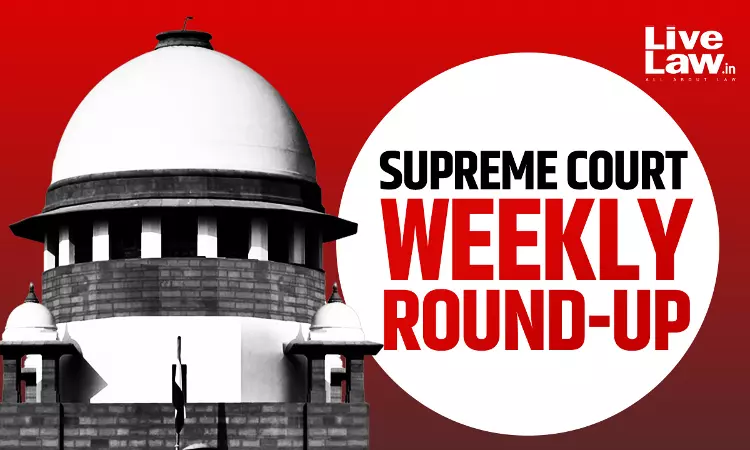Supreme Court Weekly Round-up: November 4, 2024 To November 10, 2024
Amisha Shrivastava
13 Nov 2024 10:15 AM IST

Next Story
13 Nov 2024 10:15 AM IST
Nominal IndexCitationsManish Kumar Rai v. Union of India & Ors. 2024 LiveLaw (SC) 849Pintu Madanmohan Mondal v. State of West Bengal & Ors. 2024 LiveLaw (SC) 850Union of India v. Ganpati Dealcom Pvt Ltd | R.P.(C) No. 359/2023 2024 LiveLaw (SC) 851International Seaport Dredging Pvt Ltd v. Kamarajar Port Limited, Civil Appeal No 12097 of 2024 2024 LiveLaw (SC) 852Anoop M. and others...
